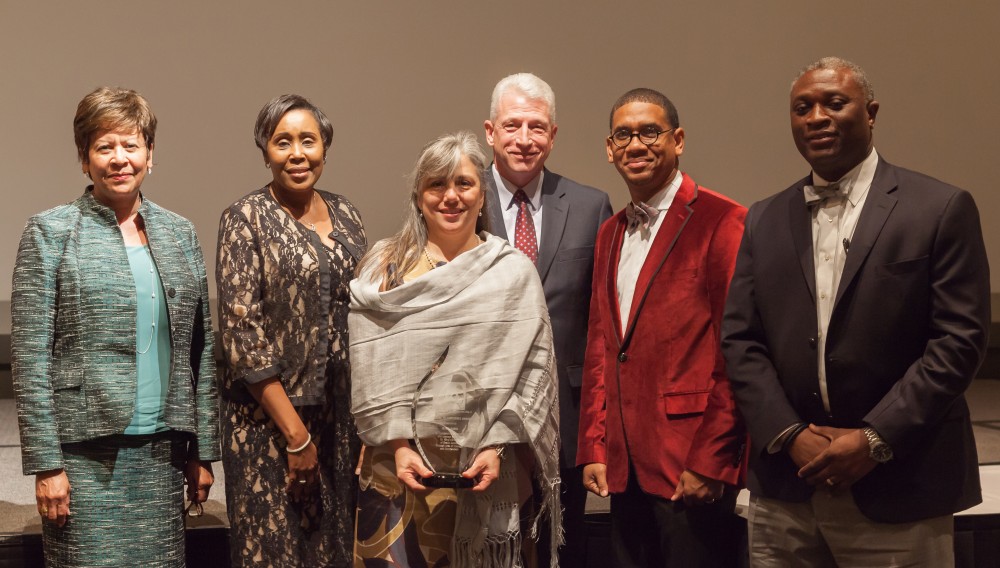

Author: Taylor Armer | Graduate Assistant, Center for Community-Based Partnerships
ABC News correspondent John Quiñones and Realizing the Dream Legacy Award winner Isabel Rubio engaged with University of Alabama students and faculty in a spirited question and answer session prior to the awards ceremony on Friday, January 13 at the Bryant Conference Center.
Ninety minutes before the banquet where he delivered the keynote address and she accepted the Call to Conscience Award a gathering of 18 students and three faculty members shared stories of Americans growing up in the South during the 1960s and of Dr. Martin Luther King Jr.’s influence on their lives and careers.
Rubio, executive director of the Hispanic Interest Coalition of Alabama (¡HICA!) said the push for equity and equality greatly influenced the founding of her organization and the work it has done over 18 years.
“I realized that we as a (Hispanic) community, especially in Birmingham, Alabama, and in the South, had an opportunity to see about doing things differently with this new, budding community of color,” Rubio said. Had she not been a “Mississippi Mexican,” she said, “the work we’ve done may not have been the same.”
Embracing one’s identity would develop as a theme throughout the conversation with students and faculty. Quiñones, a seventh-generation Texan with more than 30 years of broadcast journalism experience, said his life’s experience “uniquely qualified” him to tell the often unreported stories of the Hispanic community.
“We have to take advantage of who we are and our own histories,” Quiñones said. “As a Latino, I can share stories about Hispanics in this country because of where I come from, because of the language I speak, and because of the customs I understand.”
For Elayne Smith, an aspiring international journalist, hearing what Quiñones, Rubio and her peers said about the issues they believed important was an “eye-opening” experience. The senior journalism major from Marietta, Georgia, said the session also reinforced her concepts of reporting abroad on people of diverse backgrounds.
“No matter where I am, anywhere around the world,” she said. “I will keep in mind that there are other people who are different from me. Being reminded of my race and privilege is invaluable.”
Quiñones and Rubio also encouraged the students to use their identity in service to their communities. When Marissa Navarro, a junior in International Relations from Grand Rapids, Michigan, and president of the UA Hispanic-Latino Association, asked Quiñones how to motivate Latinos to pursue higher education, he called for a direct, interpersonal approach.
“I think we have to develop one-on-one relationships with these students at a young age,” he said. “As a Latina, you can do it and they will love you. They can connect with you and it will give them hope. It is incumbent upon each and every one of us to do it personally.”
Rubio appealed to Navarro and the representative student body to remain fearless in their pursuit of change in their communities and beyond.
“We need you,” Rubio said. “It is the bright, energetic, fearless, courageous young folks who want to make a difference and give up a Friday night to be here, that have to be a champion and not take ‘no’ for an answer.”